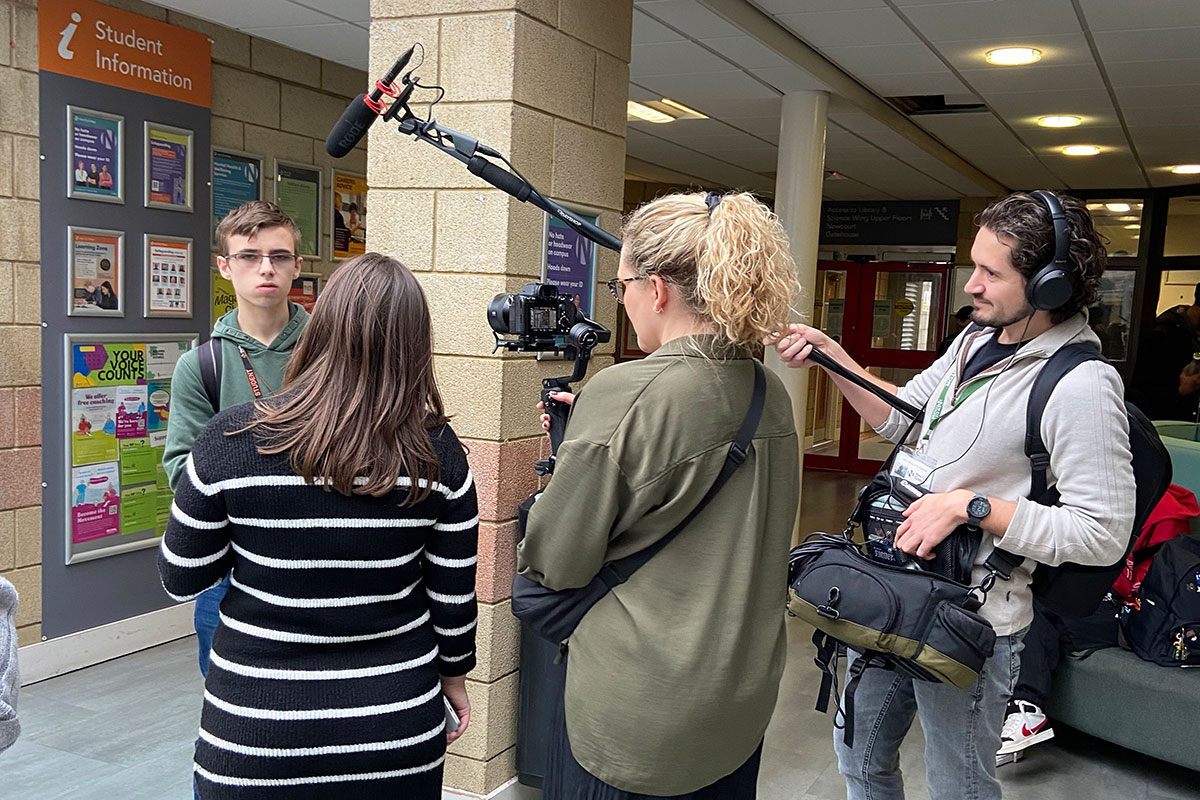Why the skills gap is pointing organisations towards apprenticeships and turning higher education on its head

In this article, Sheila Flavell discusses how the skills gap and rising costs of higher education are leading organizations to consider apprenticeships as a solution. She highlights the benefits of apprenticeships, such as gaining practical skills, industry-recognized qualifications, and the chance to be paid while training.
For school leavers, University seems like the obvious route to securing a successful career however, with a skills gap prevailing and the cost-of-living rising, employers, as well as prospective employees, should re-think the traditional academic route into the workplace.
Gaining a higher education is not something to be slammed or achievement diminished, however, there are a multitude of other routes into the workplace and organisations should be just as open to hiring from various buckets of individuals as young people should be towards exploring other avenues.
The technological skills gap is an issue that has been evidenced for many years now as the government and organisations struggle to find solutions to a problem that is holding back growth across all areas of the nation. Apprenticeships now present themselves as a solution, offering businesses the opportunity to train individuals in specific skills which they know their industry needs.
On top of this, the nation is facing rising costs and an economy riddled with instability, and while the nation appears to be recovering, tough times are still ahead meaning apprenticeships, which not only offer the opportunity to learn a skill, but the opportunity to be paid while doing so, are fast becoming a popular choice.
Government, businesses, and individuals must revaluate how they plan on achieving their goals and understand the position apprenticeships now play in the job market, offering solutions to multiple problems and opportunities in various different avenues.
Overcrowded universities
Universities are a common pathway for young people to take, however, with the £9,250 per year price tag which excludes additional living costs, it is no surprise that alternate options, such as apprenticeships, are becoming increasingly popular.
For young people looking to kick start their career, often academic qualifications seem necessary and while they offer a lot of value and provide skills that can be utilised in the workplace, they also provide limited opportunity to develop practical skills.
Individuals often spend years studying, generally 3 – 8 depending on the level of degree ranging from Bachelor’s degree to Master’s through to PhD level, and while gaining academic qualifications is impressive, students often leave without gaining the practical experience the working world is crying out for.
Apprenticeships generally take 1 – 5 years and offer on-the-job training in addition to one day of studying per week, which all contribute to obtaining an industry-recognised qualification at the end, often even a degree as the government introduced degree apprenticeships in 2015.
In fact, individuals can earn whilst gaining skills and qualifications and as we live through a time of economic struggle, it is no wonder why apprenticeships are becoming so appealing to many, gaining the skills necessary to join the working world full time without amounting thousands of pounds worth of debt.
Of course, there is still value in gaining a university degree, however as a record number of students apply to university this year meaning competition is high, individuals should consider alternate options which could ultimately give them a head start in learning the skills for their chosen career.
Bringing in new talent
Apprenticeships do not just offer opportunities to young people who wish to gain skill over primarily academic experience, without paying the high prices, but offer a huge opportunity to businesses who are struggling to fill crucial roles that will allow their organisations to grow.
Currently, research shows 92 per cent of businesses state it is important for their employees to have a basic level of digital skill, while an estimated 20 per cent of the workforce in the UK will be significantly underkilled for their jobs by 2030, amounting to around 6.5 million people.
With technologies such as ChatGPT being developed which can write articles, essays and even code in a matter of seconds, significant concerns are being raised over educational quality and the real knowledge students are gaining, presenting an even stronger case for alternate methods of learning.
Apprenticeship programmes in the UK are one way to surmount the ever-growing skills gap. Employers have the opportunity to recruit apprentices and build out a workforce that is customer-made to meet specific business, and industry, needs.
Organisations are the ones in the know, understanding the exact skills that are contributing to the nationwide skills gap. While many organisations see bachelor’s degrees and more advanced academic qualifications as desirable, when they recruit graduates they often spend a lot of time and resources training them up to sufficiently carry out their roles, which often they simply do not have the time or budget to so effectively.
Apprentices can gain knowledge and skill from the very first day of their programme which also acts as a very cost-effective way of bringing in new skills to an organisation. Businesses can save time and money on recruitment costs, which can also be supplemented by grants that are now available from the government.
Diversifying the workforce
As well as offering the opportunity to train apprentices in specific industry skills, they also present the opportunity to recruit a more diverse workforce, bringing individuals from a range of socio-economic backgrounds meaning new talent that may have otherwise slipped through the net.
In fact, research shows 33 per cent of employers have agree that apprenticeships have helped improve diversity within their workforce.
For many, university presents an expensive route which can be off putting, alternatively others do not enjoy the academic side of things but can offer skills in multiple different ways. Taking the focus off academic background and switching to an inclusive recruitment model will see fresh perspectives and a wider range of individuals brought in.
Traditional ways of recruiting and training are evidently failing to plug the skills gap and it is now time that organisations should refresh their approach, advocating for diverse ways of training and learning, while individuals should expand their views when looking to gain knowledge and skills.
A universal approach towards and advocacy for apprenticeships will see new talent emerge offering organisations increased ability to fill much needed vacancies and individuals opportunities who may have otherwise been over looked all while solving a nationwide problem that will ultimately lead to business and economic growth.

FE News on the go…
Welcome to FE News on the go, the podcast that delivers exclusive articles from the world of further education straight to your ears.
We are experimenting with Artificial Intelligence to make our exclusive articles even more accessible while also automating the process for our team of project managers.
In each episode, our thought leaders and sector influencers will delve into the most pressing issues facing the FE sector, offering their insights and analysis on the latest news, trends, and developments.











Responses